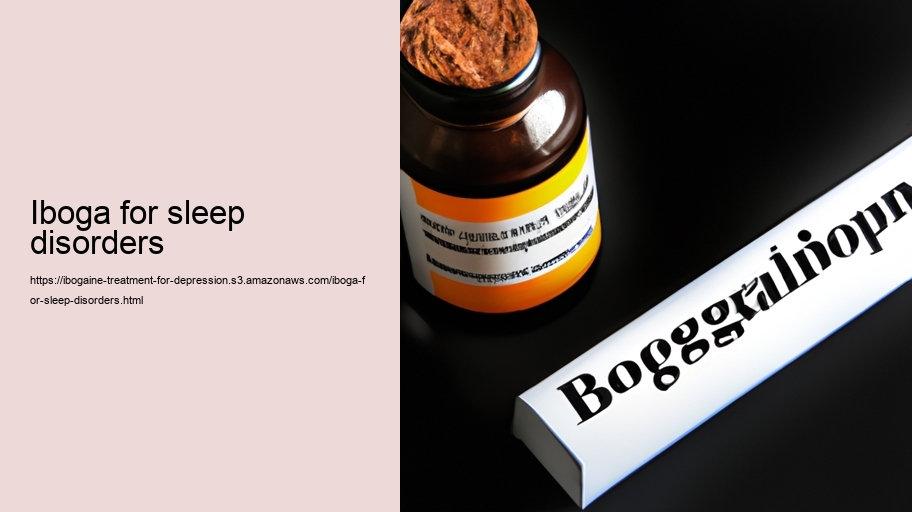Title: Exploring Iboga as a Potential Treatment for Sleep Disorders
Sleep disorders encompass a wide range of conditions that disrupt the natural sleep-wake cycle, impacting the quality of life for millions of individuals worldwide. Traditional pharmacotherapy and behavioral interventions serve as the cornerstone for managing these disturbances; however, not all patients find relief through conventional treatments. This has led to an exploration of alternative therapies, one of which is iboga – a plant with deep cultural roots and psychoactive properties that could offer new hope for those suffering from sleep-related issues.
Iboga, scientifically known as Tabernanthe iboga, is a perennial rainforest shrub native to West Africa. For centuries, it has been integral to the spiritual practices of the Bwiti religion in Gabon and other cultures in Central Africa where it is used during initiation ceremonies and healing rituals due to its powerful psychoactive effects. The active alkaloid found within iboga's root bark is ibogaine, which has garnered attention for its potential therapeutic applications.
The connection between ibogaine and sleep arises from anecdotal reports and preliminary research suggesting that this compound may influence brain activity in ways conducive to regulating sleep patterns. Ibogaine interacts with several neurotransmitter systems including serotonin, dopamine, opioid receptors, and particularly glutamate transmission - mechanisms also implicated in sleep regulation.
Patients with chronic insomnia or disrupted circadian rhythms might theoretically benefit from ibogaine's capacity to reset neurological pathways. Some users have reported profound introspective experiences leading to psychological insights that alleviate stressors contributing to their insomnia. Additionally, by potentially modulating brain chemistry related to reward pathways, ibogaine might indirectly promote healthier lifestyle choices that are conducive to improved sleep hygiene.
Despite these intriguing possibilities, it must be emphasized that using iboga or its derivatives like ibogaine comes with significant risks and uncertainties. Ibogaine administration has been associated with serious adverse effects including cardiac arrhythmias, seizures, and even fatalities when taken without medical supervision or proper dosing considerations. Furthermore, data on its efficacy for treating sleep disorders specifically remains scanty and largely anecdotal.
Moreover, legal status presents another barrier; in many countries including the United States (with an exception made for scientific research), both iboga and ibogain are classified as controlled substances due to their hallucinogenic properties making clinical application challenging.
Therefore while there exists some foundational basis upon which further research could build concerning the role of iboga in treating sleep disorders — rigorous scientific investigation is essential before any legitimate claims can be made about its safety or effectiveness.
In conclusion, while traditional remedies always merit consideration given their historical use over generations — modern medicine requires evidence-based approaches. Thus far the story of iboga’s impact on sleep disorders remains largely untold pending future studies designed according ethical standards and robust methodologies capable discerning fact myth regarding this enigmatic plant’s true therapeutic value.
Those interested in pursuing alternative treatments should consult healthcare professionals prior experimenting substances like—a cautionary tale reminding us balance open-mindedness respect complexity human health need vigilant guardrails ensure patient safety above all else.
